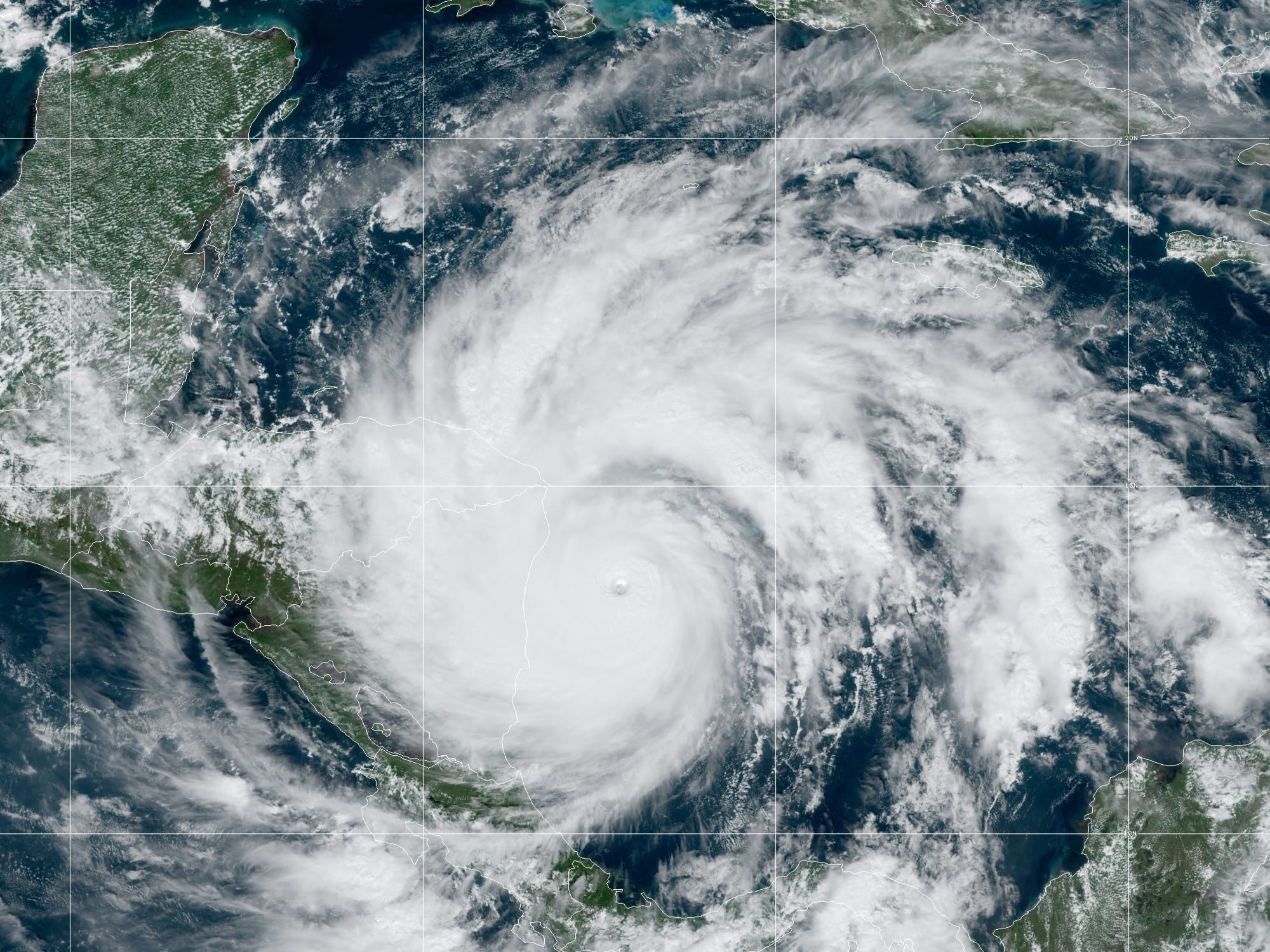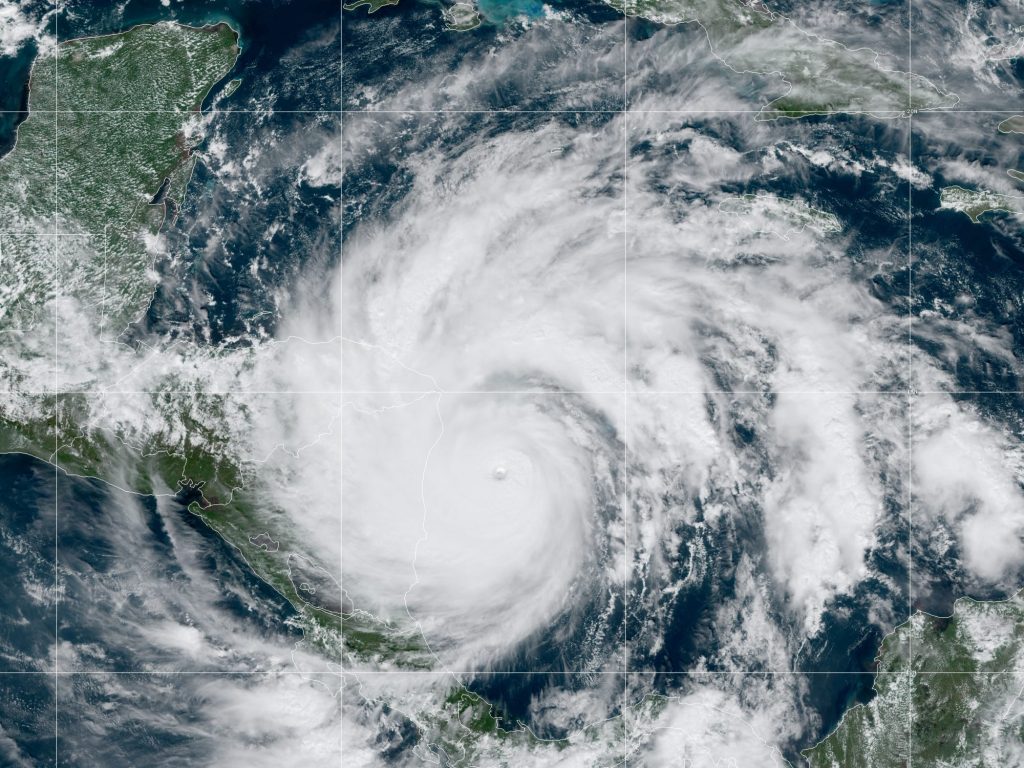
NOAA/NASA
- It will be another active year for hurricanes following 2020's record-breaking season.
- The storms could cause problems for already struggling supply chains like lumber, oil, and pork.
- "It's a significant risk that all businesses need to be thinking about right now," said AccuWeather.
- See more stories on Insider's business page.
A bad Atlantic hurricane season may be the next disruption to the supply chain.
"It looks like another active year," said AccuWeather Chief Meteorologist Jonathan Porter, "which is not good news."
Items from lumber and housing supplies, to toilet paper and tampons, to gas and plastics, to pork and chicken, have been plagued by shortages caused by a sting of factors: Supply chains snarled in the coronavirus pandemic, backed-up ports, reverberations from the February Texas freeze, the Suez Canal blockage, worker scarcity, and the temporary shutdown of a vital oil pipeline, among other issues.
Though meteorologists aren't predicting the Atlantic hurricane season, which runs from June through November, will be as record-breaking as 2020, they're saying the number of named storms and hurricanes will be higher than in a normal year.
DTN, a Minnesota-based analytics firm, is predicting 20 named storms, compared to the annual average of 12. Of those, nine will be hurricanes, and four will be major hurricanes of category 3 or stronger. AccuWeather had similar predictions of 16 to 20 named storms, seven to 10 becoming hurricanes, and three to five to becoming major hurricanes.
The economic impact from last year's hurricane season, which had six category 3 or higher storms, was about $60 to $65 billion in damage and losses, according to AccuWeather.
"The combination of another enhanced hurricane season and the threat of landfall across a big section of the East Coast of the US this year will be disruptive to the supply chain," said Renny Vandewege, a leading weather expert at DTN.
Vandewege said the storms are more likely to favor the East Coast this year, compared to 2020, when the Gulf Coast felt a heavier impact.
The storms could "disrupt really anything that's being imported in," Vandewege said.
"We're already having a months-long backup at the Port of Los Angeles, and then if we had also the same thing on the East Coast for an extended period of time, it could phenomenally exacerbate product shortages," said Chris Wolfe, chief executive officer of logistics company PowerFleet.
Storms affect a state's big industries, too. Along the Texas gulf coast, hurricanes can have an impact on the chemical and the oil and gas industries. A storm there could echo issues that arose from the Texas freeze in February and the six-day Colonial Pipeline shutdown that caused gas prices to surge and prompted some East Coast residents to panic-buy gas.
The forestry industry could be "deeply impacted" as well, Vandewege said. "There's been shortage on building materials, and that could be enhanced even more if we're seeing key manufacturing areas shut down around Louisiana and Alabama" because of a hurricane.
Pork, which is heavily produced in North Carolina and other southern states, has faced shortages in the past year, as well, thanks to the pandemic.
When hurricanes, like Florence in 2018, have struck the state in the past, thousands of hogs died. Other livestock and agriculture are also at risk when hurricanes hit.
"There's huge pork production, chicken production, all the way through the South," Wolfe said, so storms "could dirsupt food supplies."
Porter from AccuWeather also noted that the West Coast could see another damaging wild fire season, and he said companies have to prepare ahead of time. "It's a significant risk that all businesses need to be thinking about right now," he said. "What's their vulnerabilities and plan to mitigate."
Climate change and extreme weather events topped the World Economic Forum's list of biggest global risks in 2020. That was no surprise to Porter, who said, "people are getting negatively impacted almost on a daily basis by weather events. He said for businesses, the supply chain is a "major component" of that.

